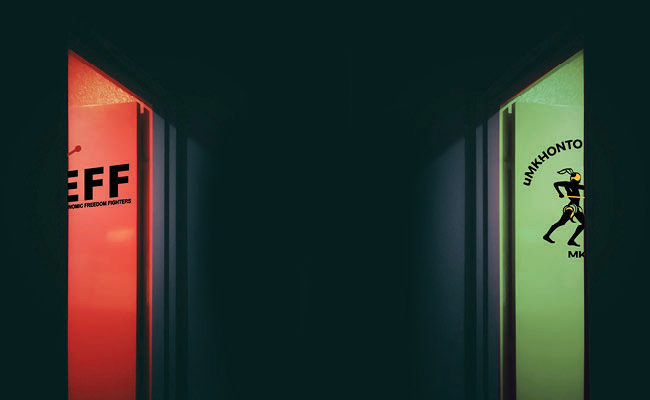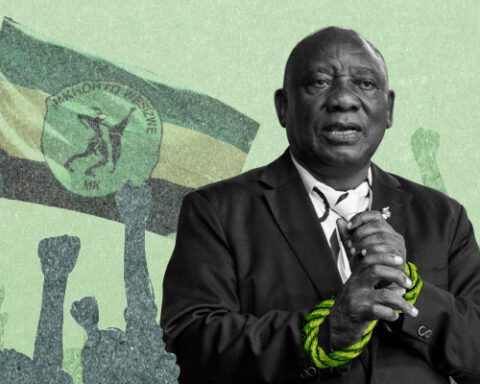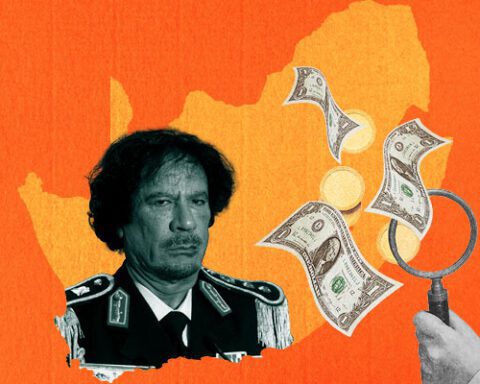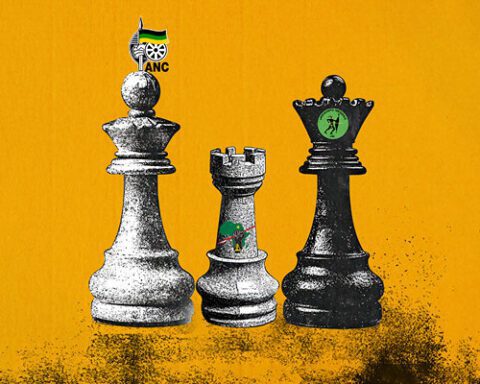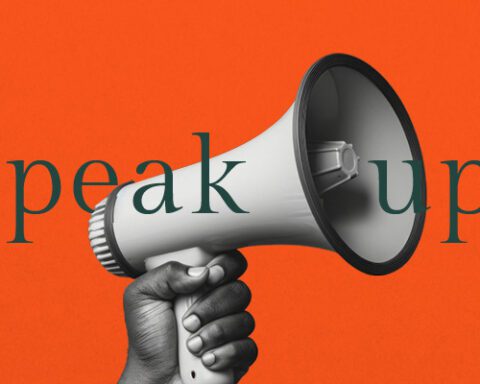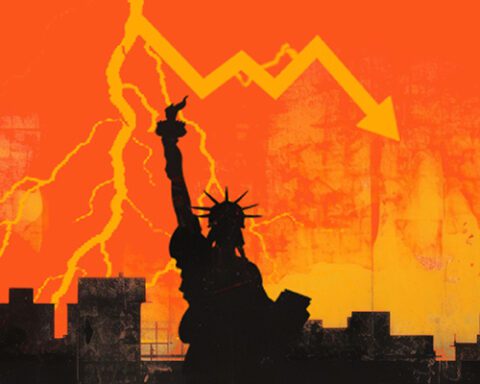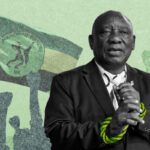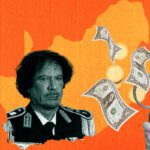You can’t claim South African politics is without irony. There’s corruption-accused Jacob Zuma, once the face of the “moral regeneration movement”. A public protector fired after being found guilty of incompetence and misconduct fighting tooth and nail for a R10m “gratuity”. An impeached judge who was nominated to serve on the Judicial Service Commission.
But nowhere does irony and politics come together so neatly as in the character of Julius Malema. The 43-year-old Malema leads a party representing the poor, marginalised and downtrodden, yet has a taste for the expensive things in life (he reportedly wore R28,000 shoes to the Durban July). Who can forget how he railed against Zuma to “pay back the money”, then allegedly found himself elbow deep in the VBS cookie jar.
It turns out the “democratic centralism” in his party isn’t quite so “democratic”, and is rather more “centred” on his own person. This from a man who once branded Zuma a “dictator”, only to go on and launch a party where he could indulge his own autocratic tendencies.
Malema, it seems clear, brooks no dissent. Consider how EFF student member Kganki Mphahlele was expelled after riling Malema on X by enthusiastically supporting Mbuyiseni Ndlozi for party deputy president.
Just last year, Malema banned more than 400 EFF members from attending the party’s 10th anniversary celebrations after they failed to heed a directive to organise transport for party members. Later, 200-odd people were recalled as public representatives for failing to ferry members to the event – and 62 were subsequently expelled from the party.
It’s telling that there was no vote required on any positions on Malema’s slate at the EFF’s last electoral conference. With his slate for the December conference already apparently taking shape, you’d be hard pressed to believe anything will be different.
Trust no-one
The problem with a cult of personality is that it tends to foster a good dose of paranoia. As Joseph Stalin remarked to Nikita Khruschev: “I trust no-one. Not even myself.”
City Press has reported that Malema apparently nixed the possibility of the EFF joining the government of national unity for fear that any EFF ministers, equipped with the resources and power that come with office, would pose a threat to his leadership.
Since Floyd Shivambu – his former partner-in-the-alleged-VBS-crime – left to join Zuma’s MK Party, Malema has lashed out at those who haven’t staked their colours to (his) mast publicly. He has called them “silent enemies of our organisation [who] must be treated as such”; he has encouraged supporters to find out where the families of members stand politically to determine their loyalty. (It is thought that Malema’s rant was precipitated by Ndlozi’s partner liking a social media post by Shivambu.)
There’s something singularly absurd – not to mention slightly Soviet – about the social media witch hunt.
Now, City Press reports that Ndlozi – a founder member of the EFF – has been barred from the party’s elective conference next month. Ndlozi is popular with the youth, who have lobbied him to stand for the deputy president position. What easier way of removing the threat than preventing him from standing in the first place – even if he’s expressed no desire to hold the position.
As for the EFF itself, it reportedly blames the bogeyman of the media for its poor showing in the election (it dropped to 9.5% support). That, and the dastardly funding of new political parties. Never mind the talk of “infiltrators”. Conspiracies around every corner.
Of course, just because you’re paranoid doesn’t mean they’re not after you. Given the exodus of senior members of the EFF, Malema could perhaps be forgiven his folly. In addition to Shivambu, the EFF has lost former student command leader Mpho Morolane, KwaZulu-Natal team leaders Gugu Mtshali and Khumbulani Langa, former MPs Busisiwe Mkhwebane, Mzwanele Manyi, Fana Mokoena, Ringo Madlingozi and Mmabatho Mokause, and, most recently, Dali Mpofu.
For many of them – specifically Mkhwebane, Manyi and Mpofu – this might not sound like the biggest loss. But, hey.
The Z factor
For the most part, these defections have been to Zuma’s new MK Party. The trend speaks either to how dire things are in the EFF under Malema, or the lure of landing a position in a more powerful party. But this is a leap laced with naivety: taking up the MK cudgels is no salve; the defectors have simply traded one paranoid autocrat for another.
For evidence of this, look no further than MK’s constitution. It gives the party president (Zuma, in other words) the unfettered power to issue decrees and appoint the “national high command”. There is no mechanism for the election of the president, nor for that of the deputy, secretary-general and deputy, national organiser, national chair and deputy, and treasurer, as News24 reports.
Look how well that’s worked out so far. At last count, Zuma had been through five secretaries-general in 11 months: Thanduxolo “Gorbachev” Dlodlo was replaced by Sihle Ngubane, who was replaced by Arthur Zwane, who was replaced by Sifiso Maseko, then Zwane 2.0, followed by Maseko 2.0. And now, Shivambu.
MK party members have also been shunted aside so that the likes of Mkhwebane can take leadership positions (she’s now the head of MK in Mpumalanga). And there’s that matter of the party founder, Jabulani Khumalo, who was expelled almost as soon as it launched. And the 10 expelled MPs who took the party to court to challenge their recall from parliament.
Separately, these expelled MK leaders reportedly said in an affidavit that they paid R10,000 a month into Zuma’s personal bank account “as a sign of loyalty and on the basis that he would use the funds to run the party democratically”. (MK denies the charge, but it’s clear someone is lying.)
And don’t forget the clause in the party’s constitution exhorting MK members to “read and internalise” Zuma’s statement, delivered by his daughter, at the launch of his party in December. As Jan Gerber points out on New24, it’s Mao’s Little Red Book, Zuma style.
These swings might seem comical. Until you consider the sinister thread running through it all. These are parties with pretensions to power – and they control a not-insignificant share of the vote: together they attracted 24% in last year’s national election; and the MK Party racked up 45% in KwaZulu-Natal.
MK in particular has tapped a vein of grievance that’s been a ready source of support: the failure of the ANC’s “democratic revolution” to ensure benefits trickle down to the people. It is this failure by the ANC that has opened the door for these parties to sell democratic snake oil – a fig leaf for cultish authoritarianism.
Democracy may be imperfect, but it tends to keep a rein on tyrants and despots. Given the chance, these leaders would upend the democratic order and rebuild it in their own image.
Sign up to Currency’s weekly newsletters to receive your own bulletin of weekday news and weekend treats. Register here.
